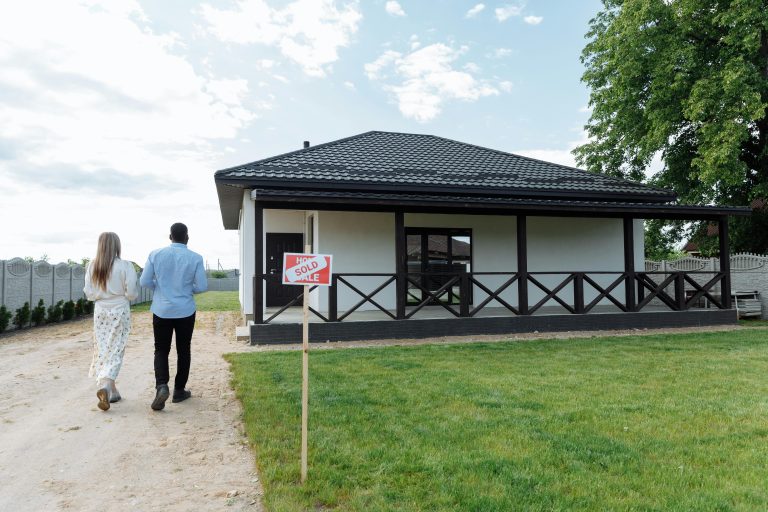· Developers encouraged to reduce pollution as part of government’s ambition to build 1.5 million homes.
· New standards will protect communities against flooding and water shortages.
· Community wellbeing and biodiversity to benefit from updated standards.
In a move to tackle water pollution and protect communities from flooding, the government is updating the national standards for Sustainable Drainage Systems (SuDS) for the first time in a decade.
The new standards – welcomed by the construction industry – will give developers clearer guidance on how to create rainwater management systems that mimic the natural environment and deliver better outcomes.
Suggested features include spaces designed to collect and filter rainwater, which will relieve pressure on our crumbling sewage system and prevent pollution overflowing into our waterways.
Impermeable surfaces such as roads and pavements increase the risk of flooding in heavy downpours, as the excess water has nowhere to go. By introducing materials designed to soak up water, new developments will be better protected against flooding.
The new standards will also encourage design features like green roofs and soakaways. These provide a place for nature to thrive and improve a building’s energy efficiency –reducing energy bills, bringing mental and physical health benefits to communities by expanding access to nature and supporting wildlife.
The updated standards signify the government’s ambition to build 1.5 million homes sustainably without delaying the planning process and comes following the record £104 billion secured from private sector investment to clean up our rivers, lakes and seas.
Water Minister Emma Hardy said:
“The Government will introduce new standards to tackle water pollution, protect communities from flooding and make our new towns beautiful.
“Nature recovery and growth can go hand in hand, and these new standards will enable the sustainable building of 1.5 million homes as part of the Plan for Change.”
Key features of the new standards include:
· Reducing flood risk by actively managing surface water on site
· Improving water quality before it enters rivers and streams
· Provide community benefits by creating more attractive and resilient places to live and work
· Prioritising solutions that enhance biodiversity and green space
· Encouraging water efficiency, by enabling the reuse of rainwater through harvesting and collection systems
· Emphasising long-term maintenance and performance
To support the government’s Plan for Change, the updated standards are aligned with the National Planning Policy Framework and will complement wider planning reforms which will take place later this year. Developers are encouraged to innovate and demonstrate how their systems meet the outcomes, rather than follow a one-size-fits-all checklist.
Notes to editors:
· The updated National Standards for SuDS can be found here: https://www.gov.uk/government/publications/national-standards-for-sustainable-drainage-systems
· The guidance is non-statutory and provides information to local authorities and builders on how they can ensure new developments meet the national standards.
Stakeholder quotes:
A Construction Industry Research and Information Association (CIRIA) spokesperson said:
“Susdrain, a CIRIA Community of Practice representing sustainable drainage systems (SuDS) practitioners, has been pleased to provide assistance to Defra in the development of the new National Standards for SuDS.
“The launch of the Standards is welcomed. They are essential for the delivery of sound SuDS as a key adaptation measure for increased flood risks arising from climate change and which will help deliver the government’s housing growth agenda through attractive places with enhanced biodiversity.
“A positive progression from previous standards, we are eager to incorporate them into CIRIA’s industry leading good practice guidance to facilitate scaling and multi-benefits from SuDS solutions.
“The launch of the National Standards is seen as a key first step in the portfolio of actions which will enable SuDS to be implemented efficiently, with consistency and leading to robust stewardship and we look forward to the next steps.”
Alastair Chilsholm, Director of Policy at Chartered Institution of Water and Environmental Management (CIWEM) said:
“We welcome the introduction of the new National Standards for Sustainable Drainage Systems which represent a necessary upgrade on the previous utterly inadequate Non-Statutory Technical Standards.
“SuDS are a crucial, multifunctional weapon in the battle to manage the growing impacts of extreme weather and increasing pollution on communities and on our rivers, lakes and seas.
“In time, they should cease to be considered “SuDS” and just become the way we deliver drainage as standard, as part of climate resilient developments. We look forward to supporting government, planners and developers in mainstreaming this crucial approach.”
Matt Wheeldon, Infrastructure Development Director at Wessex Water:
“I welcome this publication which restates the Government’s two great principles of good rainwater management – that first, rain is a natural resource that all new development should be looking to capture and reuse, and secondly that rain should be returned to the environment as close to where it landed in the first place. These national standards echo these principles.
“The next step is to support these standards with policy changes that enable the delivery of rainwater reuse and sustainable drainage. This will lead to greater resilience as our weather becomes more variable and a significant carbon footprint reduction as rain becomes better managed – utilised and disposed of – near to where it lands.”


